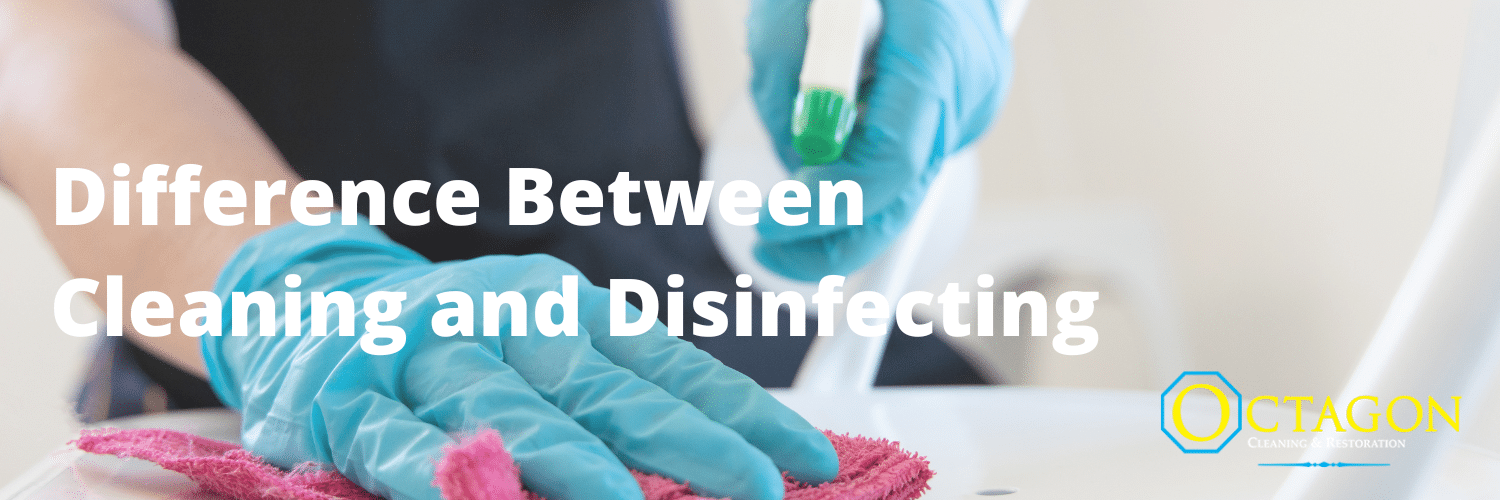
Coronavirus remains a national (and global) concern, and companies and individuals alike want to continue ensuring that their property is properly cleaned and sanitized. Our goal is to explain the difference between the two.
Germs are a part of our daily lives. Some are beneficial, others present health risks. While germs are found everywhere, we can reduce contamination via cleaning and sanitizing. You might not be aware that they are vastly different processes.
The Difference Between Cleaning and Disinfecting
- A typical cleaning process uses some kind of detergent, like dish soap, with water to physically wash away germs and substances. The germs are not actually killed; however, the amount of them is reduced since it’s been washed.
- Disinfection involves a chemical that is designed to kill germs on a surface. An example is rubbing alcohol or bleach. Usually, there is something called a “dwell time”; a minimum amount of time for the disinfectant to remain wet for the germs to be killed off. It will be nearly ineffective if you don’t follow the product label instructions.
A Quick Guide to Cleaning vs. Disinfecting
All facilities have different cleaning/disinfection protocols (i.e., some places require daily disinfection, others not so much). Keep in mind that if you’re disinfecting, you should also be cleaning. Remember that disinfectants do not remove dirt and grime from surfaces, as they are not made to break down grease/dirt/etc., so there are two steps to the process. Remove filth first, then germs second. While you might have cleaned your bathroom countertops, that doesn’t mean they are free of germs.
Some areas to always be cleaned and disinfected are called ‘high touch’ areas. These include surfaces that are frequently exposed to high levels of traffic, such as light switches, doorknobs, and handrails, to name just a few. Cleaning these things will make them appear clean and shiny and smell fresh! But that doesn’t mean the amount of germs has been brought to a safe level. A disinfectant is only considered a disinfectant if it can kill 99.999% of germs on hard surfaces after the designated dwell time (1000 times more effective than a project labeled 99%!).
Considering Infectious Diseases
When it comes to infectious diseases such as Covid-19, you should understand and consider the risks associated with this type of cleaning. You’ll be responsible for safely using potentially toxic chemicals, disposing of contaminated waste, and ensuring you are using adequate safety equipment, like PPE. The EPA strictly regulates infectious disease cleanings and has firm guidelines. There are some situations where you, as a home or business owner, cannot handle it yourself.
Why Hire a Remediation Specialist
Trained professionals (like us here at Octagon) can handle all the fine details that this type of remediation entails and leave you with a clean and safe environment. Octagon is proud to offer free inspections and emergency response for infectious disease exposures.
